The very first question you need to ask yourself when you decide to start a cleaning business is if you want to do residential or commercial cleaning. Your hourly rate, business insurance, supplies and type of advertising will be very different depending on the type of cleaning you are specializing in. It is very common for a new cleaning business to start with residential cleaning and work their way into commercial cleaning in the future if they desire to do so. To help you get started, we have mapped out a step by step guide in starting a residential cleaning business.
The process of starting a residential cleaning business includes:
- Research Residential Cleaning in Your Area
- Decide on Your Hourly Rate
- Pick a Name for Your Business
- Open a Business Banking Account
- Purchase Business Insurance and Get Bonded
- Apply for a Business License
- Purchase Your Supplies
- Get Visible Online
- Start a Referral Program
- Hire an Accountant
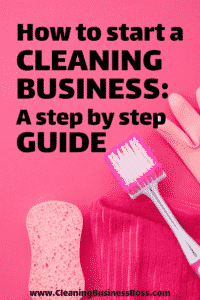
Step 1: Research Residential Cleaning in Your Area
Before you make any important decisions like your hourly rate or target market, it is important to first do research on residential cleaning in your area. You need to have a full understanding of the demand for residential cleaning near you, the average hourly rate other companies are charging and what is required to start a residential cleaning business.
To start off your research, you want to scope out the demand for residential cleaning in your area first. What neighborhoods are more likely to invest in residential cleaning? Is there a large number of competing businesses near you? What are the specialties that your competitors are offering? You want to start thinking of what you can offer that will set you apart from your competitors.
Next, you need to investigate what is required in your area to start a residential cleaning business. We recommend visiting the Small Business Administration’s Licenses and Permits page on your local government’s website. This page will give you more details regarding what exact licenses will be required for you to start doing business legally. You will often be able to find the application you will need to fill out for a business license on this page as well.
The last piece of research you need to gather is the average hourly rate in your area for residential cleaning. In order to find out the hourly rates other companies are charging, start by making a list of well-known residential cleaning businesses in your area, including their contact phone number. You can often find this by doing a simple Google search. You want to make sure these companies specialize in residential cleaning and not commercial cleaning since the price will vary for each type of cleaning. Once you have made a list of at least five other companies near you, start calling each of them and asking for the cost to clean your home. You can ask for either their hourly rate or for an estimate based on the size of your home.
If they provided you with the total price for the cleaning job and not an hourly rate, you will want to also ask the amount of time they think it will take them to clean your home. This will help you calculate the hourly rate. You can divide their total estimate by the number of hours they expect it to take. This number will be the approximate hourly rate that they charge. Gathering this information will be vital for you to complete your next step.
Step 2: Decide on Your Hourly Rate
Once you’ve collected the pricing for all five companies in the last step, it is time to analyze the rates you gathered. Is there an hourly rate or flat fee that is common for the five companies? Was it more common for the businesses to provide an hourly rate or give you a flat fee? As you get started, you want to stay close to the average hourly rate provided by your competitors. Once your business gets more experience, testimonials, and higher demand, you can begin to raise your prices.
In the US, residential cleaning businesses typically charge between $25 to $45 an hour. The specific rate will depend on how high the demand is in your area. If you plan on operating your residential cleaning business in more than one city, you will want to find the average hourly rate for each area as it could be much higher in the second location.
In the beginning of starting a business, it can be easy to think that you will grow your business quicker by keeping your rates as low as possible. However, you need to be mindful of all your future expenses when deciding on your rate. If your rate is too low, you can end up going negative later after you have paid for the overheard your new business will come with. Your hourly rate should be competitive within your market, but it should also be fair for the valuable services you are providing! Residential cleaning is in high demand and customers are willing to pay competitive rates.
As you get started, we recommend sticking with an hourly rate in the beginning. Once you have more experience and a better understanding of how long each cleaning job will take to complete, you can switch over to a flat fee if you choose to do so. An hourly rate ensures that you are paid fairly for all the cleaning services you have provided.
With an hourly rate, you can still provide your customers with estimates on what you expect the job to cost. Before you provide estimates, it is important to understand how long cleaning a home will take you. To calculate this, we recommend setting a timer and log how long it takes you to clean each room in a home. You will want to keep track of how long it takes to clean a full bathroom, half bathroom, bedroom, living space, a kitchen without appliances, and a kitchen including the inside of appliances.
Then when your potential customer reaches out to you, ask how many bedrooms and bathrooms are in the home. Since this is residential cleaning, you also want to ask if the customer wants the inside of their kitchen appliances cleaned or only the outside. Once you have a full understanding of what the customer is looking for, you can add up the time you expect it to take you and multiply that by what you’ve decided on for your hourly rate.
Step 3: Pick a Name for Your Business
Before you open a banking account for your business and apply for a business license, you need to decide on a name that you want to do business as. The most important factor to keep in mind when thinking about business names is if the name is already used in your area. If there is already another business using the name you decide to use, you will not get approved for a business license. The name needs to be unique to you and not already actively in use by another company.
We also recommend picking a name that is easy to pronounce. If you decide to specialize in a specific type of cleaning, you could include parts of your specialty in the name. An example of a name like this would be Murray Ecofriendly Residential Cleaning. Your business name should be a name you’re proud to go by and something you still see yourself using five or ten years down the road.
Once you have 2-3 favorite names picked out, you can do a Google search to see if these names are already in use in your state. Frequently, local city government websites will have a search option where you can type in your business name to see if it’s already taken as well.
Step 4: Open a Business Banking Account
For tax and legal purposes, it is important to keep the income from your business separate from your personal finances. By opening a separate banking account for your business, you will have an easier time adding up the income your business has brought in and tracking the business expenses. Opening a business account is like opening a personal checking account and it is not time-consuming. As you are starting your business, you can open the account with your social security number. Depending on the type of business license you choose, you can change the identification number on file to represent your business entity instead if you prefer.
When it comes to what bank you choose to open your new account with, it is completely up to your own discretion! We recommend asking the bank if they have any added benefits for business accounts and what fees are included with the account. By choosing a bank with fewer fees, you will keep more of your income in your own pocket!
Once you have your new business banking account set up, you will want to deposit any of the money your customers pay you into this account. If you accept credit cards or Venmo, you will want to make sure the payment processor is linked to your business account and not your personal checking account. When you are paying yourself, we recommend not taking any of the cash before it’s been deposited and then withdrawing it from the business account after. This way, once a quarter, you will be able to easily add up all the deposits and income from your business. You will need to provide your accountant with this information to help you correctly file your business taxes.
Step 5: Get Business Insurance and Get Bonded
Business insurance is a necessity for all cleaning business owners. This step is not an option, even if business insurance isn’t required by your state. By investing in the proper insurance, you are protecting both yourself and your business. If an accident happens while cleaning a home, you can rely on your insurance and will not have to cover all the damages by yourself.
For residential cleaning, we also highly recommend getting bonded. In some areas, this will be a requirement before you can apply for a business license. Even if it is not a requirement, being bonded will set you apart from your competitors. A surety bond acts as a contract between you, your customer and the insurance company that the bond is through. A bond protects your customer if one of your cleaning professionals is found guilty of stealing. If the cleaner was found guilty in court of law, the insurance company would then cover the cost to replace the items that were stolen.
Even if you are the only one completing each cleaning job, investing in business insurance and getting bonded still has benefits that will pay off long term. First, your customers will trust you more. When you say you are bonded and insured, your customers gain an extra layer of trust and you appear more credible in their eyes. It is an incredible selling point when you are talking to a potential customer.
Second, if you plan on growing your business into a larger organization, you can save time by getting bonded and purchasing insurance now instead of later. Especially as you start hiring on additional help for your cleaning jobs, it will be crucial for you to be bonded. When it comes to business insurance and being bonded, it is always better to be safe. You don’t want to be sorry later when an accident or situation arises.
The amount of coverage that your business insurance and bond should have depends on the current size of your business. For surety bonds, the coverage typically starts at around $10,000 and can go up to $100,000. When you are first starting your business and may only have one employee, going with the lower amount of coverage would be best suited for you. As your business grows, you can easily increase the amount of coverage you have by reaching out to your insurance company.
Step 6: Apply for a Business License
The next step in properly starting a residential cleaning business is applying for a business license. We include this step after business insurance and getting bonded because some states will require you to show proof of your insurance and bond before you can apply for the license.
Before applying for your business license, you want to refer to the data you found in the first step. What type of license is required in your state to operate legally? Ensuring that you have all the proper licenses is vital to running a successful residential cleaning business. The requirements can vary drastically depending on your location. Most states in the US will have different requirements. As we mentioned previously, you want to refer to the Small Business Administration’s Licenses and Permits page on your local government’s website for more details on your area. You can often submit the application online or in person at your local city’s courthouse.
Another important factor to keep in mind during this step is the different type of business entities. Even if your state has a very minimum number of requirements for a business license, it may be beneficial for you to start a larger business entity depending on your goals. The type of business entity we recommend for a residential cleaning business is a Limited Liability Company (also frequently referred to as an LLC). This type of business entity is the simplest to create and will also provide you with the largest amount of benefits.
By creating an LLC, you will have more protection for your personal assets. If someone sues your company, they cannot go after your personal assets if you operate an as LLC. However, if you operate as a sole proprietor, then the person could go after your personal assets. There are also tax benefits to operating as an LLC. We’ve noticed it gives a business more credibility with their customers as well.
Step 7: Purchase Your Supplies
Before you can complete any cleaning jobs, you need to purchase the right supplies! Residential cleaning typically requires a standard set of supplies. You can begin by investing in the minimum amount of supplies and then add more supplies as your business continues to grow.
Your supplies do not have to be expensive and most supplies can be purchased at your local discount stores. The standard business supplies for residential cleaning include a broom, dustpan, vacuum, glass cleaner, multipurpose cleaner, cloths, sponges, protective gloves and a caddy to keep all your supplies in. As you grow your business, we recommend also investing in a degreaser, bathroom cleaner, oven cleaner, bleach, furniture polish, white distilled vinegar, dryer sheets, baking soda, paper towels and a step ladder for hard to reach places.
As you become more experienced, you will find new supplies that will help you get specific concerns taken care of. For example: Dryer sheets work wonders for getting hard water off glass in a shower. White distilled vinegar mixed with water works as an excellent glass cleaner. White distilled vinegar can also be mixed with baking soda to get out tough stains or loosen a clogged drain.
Step 8: Get Visible Online
It is the age of technology! When looking for a residential cleaning business to clean their home, a minimum of 90% of potential customers will begin by searching the Internet first. By becoming visible in the online space, you can reach your target audience quickly. The two main ways to get visible online is through a website or through social media channels.
Websites have become inexpensive to create. With providers like GoDaddy, Wix, and WordPress, you can purchase a domain name and get a website built within a week. These providers also offer platforms where you can build the website yourself without knowing how to code. Website builder tools allow you to pick a theme that fits your business and then drop in your own content. You can operate a simple website for as low as $10 a month.
Social media is also a very inexpensive way for your customers to find you online. Creating a Facebook business page and Instagram business account are both free! Plus, most of your potential customers are already spending significant amounts of time daily on social channels. Although we recommend focusing on Facebook and Instagram, you could also consider Pinterest and Twitter as well, depending on the amount of time you have available.
For content, we recommend providing a list of the services you offer on your website and social media channels. You also want to include any sort of specialties you offer, along with what your typical business hours are. The most important thing to have visible on your website and social media is your contact information. If your customer doesn’t have a way to reach out to you, then you will have wasted the time you spent getting your business visible online!
If you skip out on this step and decide to not be visible online, you could be missing out on hundreds of potential customers! You don’t have to invest hours in advertising online, but you do want to make sure a customer can find you online if they search for your business.
Step 9: Start a Referral Program
One of the top forms of advertisement for residential cleaning is referrals! When someone has had a great experience with a cleaning business, they love to share it with their friends. By starting a referral program, you can provide your current customer base with motivation to refer all their friends and family to you for cleaning!
You can get creative when it comes to designing your referral program. You can offer a certain percentage off your customer’s next cleaning for every referral they send your way. You can also provide a free home cleaning for every 10 referrals that book a cleaning with you. When drafting up your referral program, you do want to make sure that it makes sense financially for you. If the discount offered puts your finances in the negative, then it’s not worth it in the long run!
Step 10: Hire an Accountant
Taxes may not be the most entertaining part of opening a new business, but taxes are absolutely a very vital part. We recommend hiring an accountant right away to ensure that all your business finances are adding up properly. An accountant will be able to help you track how well your business is performing, along with filing your business taxes.
Filing your taxes incorrectly can cause a business to sink quickly. By hiring a professional, they will know what forms you need to submit, the amount you need to pay and how frequently you need to pay your taxes (as it could be quarterly instead of annually).
Most tax professionals and accountants will recommend putting away 30% of the income that your business is bringing in for taxes. Although this may seem like a large amount, you will be grateful that you did later. By saving for taxes ahead of time, you will be less shocked by your tax bill later!
Starting a residential cleaning business is one of the least expensive ways to start a side hustle and turn it into a full-time career! You can create your own schedule and the growth opportunities are endless. By following the steps included above, your new residential cleaning business will have a strong foundation and be off to a profitable start!
Related Questions:
How can I set myself apart from other residential cleaning businesses?
To set yourself apart from other residential cleaning businesses in your area, you can specialize in specific types of cleaning that your competitors are not offering. Examples of what you can specialize in can include using eco-friendly products or having a fast turnaround time (if your schedule and staff allows you to do so).
Using ecofriendly products has become in high demand. Potential clients love knowing that the people living in their home and their pets are safe from harsh chemicals. Ecofriendly products can also often be purchased in bulk to help you keep the cost down. By offering eco-friendly products, you can raise your prices slightly since customers are willing to pay more for these products.
Do I need both a website and social media for my residential cleaning business?
Creating both a website and social media channels is not required to start a residential cleaning business, but it can be beneficial to have both. If you have the time and budget available, we do recommend having both. If you don’t have a large amount of time available right now, you can start with social media channels and then create a website later down the road.
If you decide to only have one or the other, we would recommend ensuring you have social media channels first. This is the least expensive option and a wide number of your target market can be found easily through Facebook and Instagram.
Can I use my legal name as my business name?
Yes, you can use your legal name as you start your residential cleaning business. However, ask yourself if you will still want to go by your legal name once you have hired additional staff members. If you do business as your legal name, customers may not expect there to be any additional cleaning help and may not recognize it as a full-fledged business. For example: If you go by Harris Residential Cleaning instead of Amanda Harris, customers will not be surprised when other cleaning professionals arrive to clean their home and not you.
Please note: This blog post is for educational purposes only and does not constitute legal advice. Please consult a legal expert to address your specific needs.
Take your next step in opening a cleaning business. Click here to begin your startup today!

About the author. Entrepreneur and Cleaning Business Fan.
Hi! I am Shawn and I am a happy individual who happens to be an entrepreneur. I have owned several types of businesses in my life from a coffee shop to an import and export business to an online review business plus a few more and now I create online cleaning business resources for those interested in starting new ventures. It’s demanding work but I love it. I do it for those passionate about their business and their goals. That’s why when I meet a cleaning business owner, I see myself. I know how hard the struggle is to retain clients, find good employees and keep the business growing all while trying to stay competitive.
That’s why I created Cleaning Business Boss: I want to help cleaning business owners like you build a thriving business that brings you endless joy and supports your ideal lifestyle.

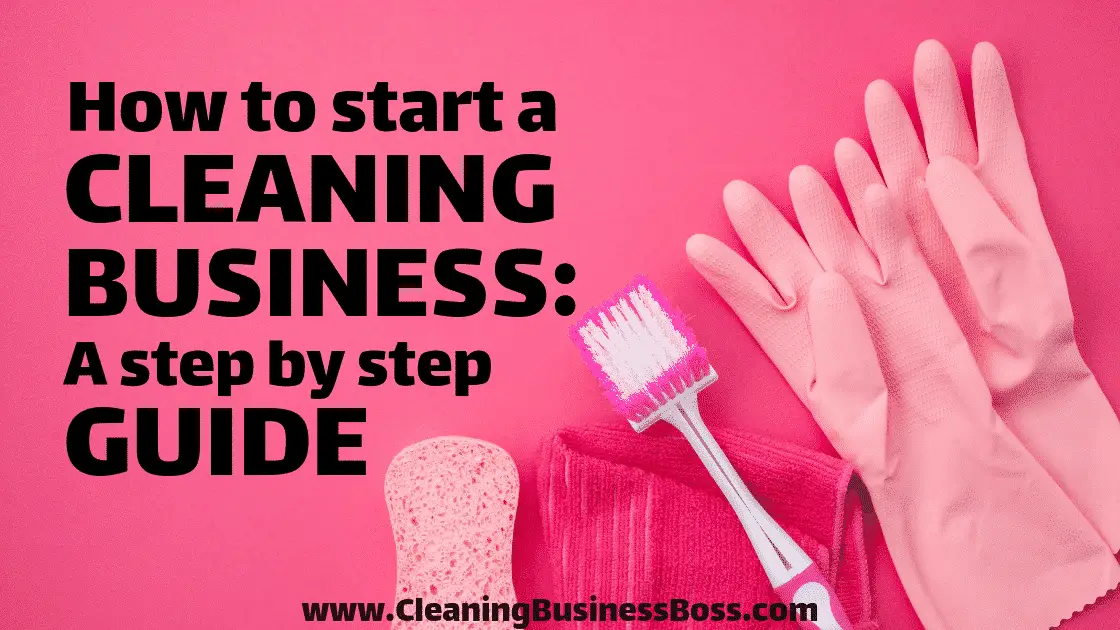
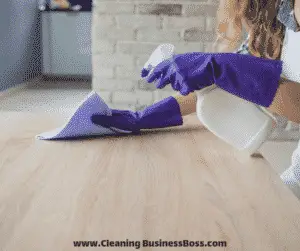
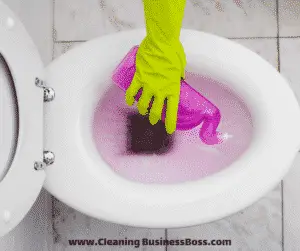
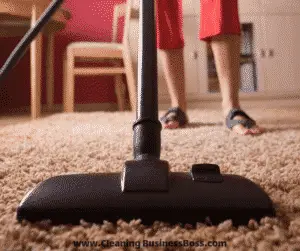
2 thoughts on “Step-by-Step Guide to Starting a Residential Cleaning Business”
Comments are closed.